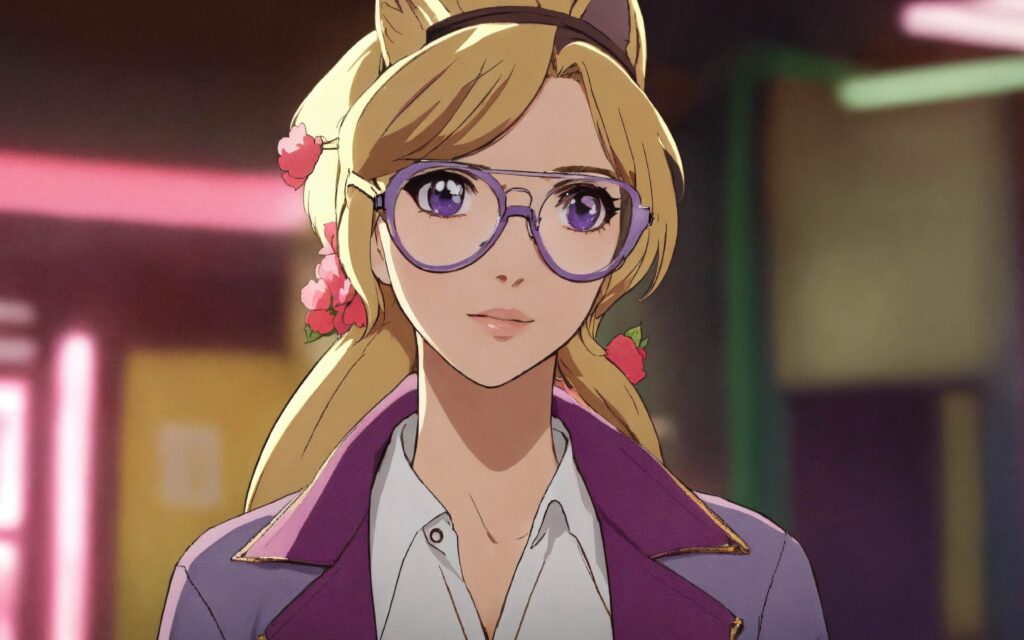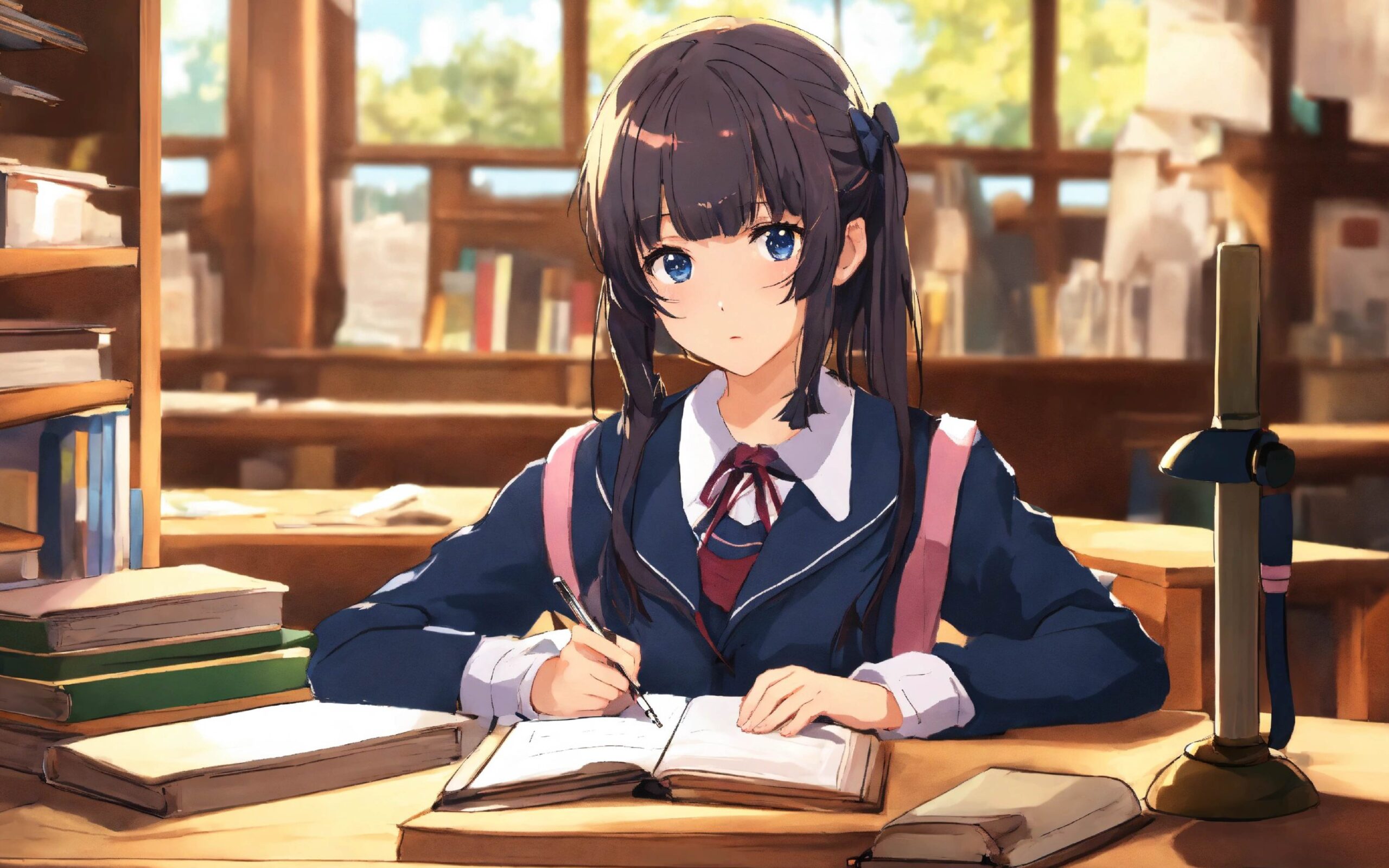Fans of light novels and anime equally will find resonance in Classmate No Moto Idol Ga. This narrative turns an apparently ordinary school-life environment into something far deeper, far more meaningful. But really what distinguishes this book? Regarding its themes, characters, and story, what has readers found to be appealing? We will thoroughly explore the universe of “Classmate No Moto Idol Ga,” the narrative, the people, and the ideas that make this book an interesting read in this essay.
Introduction to Classmate No Moto Idol Ga Novel
“Classmate No Moto Idol Ga” first looks to be another run-of- the-ordinary school-life tale. But delve a bit farther and you’ll discover that it is anything from typical. The novel chronicles the life of a small child who was once a brilliant star in the idol business—a world in which excellence is not only desired but also expected. Her life changes dramatically, though, as she lowers her pedestal and resumes the life of a regular high school student.
This change could go more naturally. The protagonist battles to fit into a world in which she is no more the centre of attention and where her every action is not closely watched by devoted followers or unrelenting paparzzi. The book presents readers with an interesting and thought-provoking story that brilliantly catches the complexity of this change.
The Premise: What’s the Story About?
“Classmate No Moto Idol Ga” is fundamentally about the lives of a former idol attempting to fit into the daily grind of high school life. But this is about identity, about discovering yourself after all you once knew has been taken away, not only about a girl seeking to flee her past.
Once a great idol cherished by many and followers, our protagonist was She was well-known, rich, and apparently living a flawless life. She stepped away from the stage, nevertheless, when the demands of the idol business wore on. She suddenly finds herself in an ordinary classroom surrounded by peers devoid of the life she once led.
The protagonist’s inner conflict as she works to balance her past with her present is deftly explored throughout the book. Is she ever able to really shed the shadow of her past life? Alternatively will her past linger with her regardless of her best efforts toward moving on?
The Protagonist: A Former Idol’s Journey
The path of our protagonist is among the most interesting features of “Classmate No Moto Idol Ga.” She is a character molded by the environment she used to live—a world far apart from the daily existence of a high school student. She was under continual pressure to keep a pristine image, to be all her followers expected her to be, as a former idol. Now, though, she is only another student in a packed classroom—or at least, she strives to be.
The book deftly captures her inner conflict as she negotiates the sharp difference between her past life and her present one. She yearns, on the one hand, the normalcy she never had as an idol. She battles, meantime, the loss of identity associated with moving away from the limelight.
The heart of the book is this path of self-discovery. The circumstances of the protagonist compel her to face challenging issues regarding her identity and actual life goals. She is more than just an idol. In a life so different from the one she formerly knew, will she find happiness?
The Impact of the Idol Industry on the Character
The sparkling universe of idols is less glamorous than it first looks. Beneath the surface is a world of great pressure where constant demand for perfection rules. The book does a great job of removing the curtain to expose the toll such a lifestyle can take on a young person.
An idol, the protagonist was supposed to be perfect in appearance and behavior. She had little chance to be herself since every element of her life was under constant control and examination. She must face mental scars and great insecurities resulting from her pressure to keep a perfect appearance while she works to start over.
The book looks at how the idol business has influenced the protagonist’s personality and perspective on the world, therefore illustrating its ongoing influence. She struggles to let go of the behaviors and perspective she developed over her career even after resigning from her idol post. Her character gains complexity from this battle, which also makes her path all the more intriguing.
Classroom Dynamics: A Clash of Worlds
Being a former idol in an ordinary school is like trying a fish out of its natural habitat. The same thing the protagonist wants to leave behind—her fame—complicates her attempts at fit-in. The book looks at how her classmates treat her; some are in awe of her background, some are jealous, and a few treat her apathetically.
Much of the conflict in the book is generated by this collision of worlds—between the everyday and the remarkable. Trapped between two worlds, the protagonist struggles to fit in a scene both known and alien to her.
The internal conflicts of the protagonist exacerbate the dynamics in the classroom. She wants to be simply another student, but her idol history makes it challenging for her to blend in really. The book deftly shows this conflict, which gives the narrative complexity.
How Fame Alters Relationships
One can see fame as a two-edged sword. It can build walls even while it inspires love. Her past always colors the protagonist’s interactions with her peers, which makes it challenging for her to create real friendships.
The book movingly shows how she negotiates these difficulties, trying to create relationships based on who she is today rather than who she used to be. Many readers can identify with this difficulty since we all have difficulties creating sincere relationships with people.
The path the protagonist takes to create fresh relationships is not easy. While some of her peers are jealous or bitter, others are in wonder at her background. These relationships complicate the narrative since the protagonist has to negotiate a life in which her past still shapes her present
Main Themes Explored in the Novel
“Classmate No Moto Idol Ga” tells a narrative filled in ideas that appeal to readers, not only about a former idol. Let’s discuss some of the main subjects the book probes.
Identity and Self-Discovery
The protagonist’s path of self-discovery runs across one of the main ideas in the book. Having spent most of her life living what others expected of her, she now struggles to find her actual self. This issue of identity speaks to many readers since everyone experiences times of doubt about who they are and what they wish from life.
The protagonist’s search for her identity in a society where others have always defined her is deftly captured in the book. Though it is full of difficulties, this road also offers development and self-realizing insight.
The Pressure of Perfection
The book also addresses the idea of perfection and the demands accompanying it. The protagonist, being an idol, was supposed to be perfect in appearance and behavior. Her extreme insecurities resulting from this demand to be perfect have to be faced as she negotiates her new existence.
The way the book examines this topic is both moving and provocative. It begs crucial issues of how society demands affect people, especially those in public view. Inspired and relevant is the path the protagonist follows to overcome these demands and discover her own way forward
How Society’s Expectations Shape the Characters
The expectations of society greatly define the characters in “Classmate No Moto Idol Ga.” The protagonist especially has been shaped by the expectations placed upon her as an idol. The book explores how these expectations still shape her even now she has left the world of idols behind.
It’s a potent statement on how society’s demands affect people—especially those in public view. The book begs serious issues regarding the price of celebrity and how it affects people thrown into the limelight.
The Role of Friendship and Support
The part friendship and support play is another important element in the book. The protagonist gains insight on the need of having people who really care about her as she tries to fit in the planet. The book deftly shows how friendships may support and inspire us to keep going ahead, therefore enabling us to negotiate the complexity of life.
The protagonist’s companions are quite important in guiding her through the complicated feelings accompanying her particular circumstances. They provide her a safe forum to communicate her emotions and a sense of normalcy.
How Friends Help Navigate Complex Emotions
The way the book presents these friendships is realistic and touching, highlighting the need of having people who know and encourage us. The presence of companions who really care about the protagonist makes her path more approachable and gives her the help and inspiration she requires to keep forward.
Still, these friendships present certain difficulties. The protagonist’s past as an idol still shapes her relationships, which fuels conflict and suspense. Her friends, however, are always at her side, guiding her through her challenging feelings and trying circumstances. These bonds are evidence of the strength of friendship and how it may give one stability and belonging even in the most doubtful of circumstances.
Isolation vs. Connection
The conflict between isolation and connection is another subtly yet powerful motif in “Classmate No Moto Idol Ga.” Though surrounded by people—fans, managers, and media—as a former idol—the protagonist was frequently cut off from real human connection. Born from her need to separate herself from her past, she confronts a different form of isolation as she tries to lead an ordinary life.
The book deftly catches this contradiction. The protagonist longs for connection and understanding on the one hand, yet she is cautious about inviting people in because she worries they would not view her for who she really is. Her character is given more complexity by this inner conflict, which also emphasizes the difficulties of transcending a life lived under public view.
Character Development: Growth and Evolution

The way “Classmate No Moto Idol Ga” develops its characters—especially that of the protagonist—is among its most appealing features. Her path from a world of glitz and celebrity to the more realistic high school existence marks notable personal development.
From Idol to Individual
It is not easy to go from idol to person. The protagonist’s path is full of difficulties as she searches for who she really is and strives to let go of the well built image for her. This change is about reinventing oneself truly to meet her needs and wants, not only about her surroundings.
Readers see the protagonist’s slow change all through the book. She is a little child unsure of her position in the world still clinging to the identity placed upon her by the idol business. However, as the narrative goes on she starts to embrace her uniqueness, find strength in her voice, and learn to negotiate life on her own terms.
Overcoming Past Trauma
The protagonist’s growth also depends critically on her battle to go past her tragedy. She must face her severe emotional scars inflicted by the demands and expectations of the idol culture as she strives forward.
The way the protagonist progressively comes to grips with her history and starts to heal throughout the book is amazing. Though there are challenges along this road, it is finally one of resiliency and development. She comes out the other side and faces her demons more strong and confident by the end of the book.
Secondary Characters and Their Impact
Although the protagonist’s path takes front stage in the book, the other characters also significantly help to shape the story. Every individual gives the narrative more complexity and presents obstacles the protagonist has to negotiate from several angles.
The Supportive Friend
The closest friend of the protagonist, who provides her whole support along her trip, is one of the main auxiliary characters. For the protagonist, this person provides the security and comfort she requires to meet her obstacles. One of the best aspects of the book is the friendship between these two characters, which emphasizes the need of having someone who believes in you even if you find it difficult.
The Envious Rival
The protagonist’s opponent, a classmate jealous of her former success and objecting to the attention she gets, is another crucial figure. This figure drives the protagonist to face the darkest sides of human nature—jealousy, bitterness, and the want to destroy others—so adding suspense and drama to the plot.
Though they hate one another, the protagonist’s connection with her competitor is complicated. It’s a complex picture of how various people respond to the demands and stresses of life, not only a clear example of good against bad. This conflict finally drives the protagonist to define herself on her terms instead of others, therefore accelerating her development.
The Unseen Mentor
Finally, there is the character of the invisible mentor—a person from the past of the protagonist who still shapes her even outside of the idol universe. This mentor stands in for the ideas and ideals the protagonist formerly cherished, but as she starts her new life she has to rethink them.
Throughout the book, the mentor’s influence is felt guiding the protagonist’s choices and therefore forming her perspective. But as the narrative goes on, the protagonist starts to doubt the teachings she acquired from this mentor since she understands she has to create her road to discover actual happiness and fulfillment.
Plot Twists and Unexpected Turns
“Classmate No Moto Idol Ga” is more than just a simple story with surprising turns and plot twists keeping readers on the brink of their seats. These turns provide the narrative complexity and challenge the protagonist to face terrible facts about the world she surrounds and herself.
The Revelation of a Hidden Past
The disclosure of a secret component of the protagonist’s past—something she has kept hidden even from herself—is among the most startling turns in the book. This disclosure forces the protagonist and the audience to rethink all that has gone before, therefore flipping the narrative.
This turn-about is expertly done, adding complexity to the narrative and intensifying the emotional impact of the story. For the protagonist, it also marks a turning point as it forces her to face the aspects of herself she had long attempted to overlook.
The Betrayal of Trust
The protagonist’s betrayal of trust by someone she felt she could rely on adds still another noteworthy turn in the book. She loses confidence and starts to doubt who she can genuinely trust after this betrayal. The protagonist’s final metamorphosis is sparked by this very moment of great emotional intensity.
The Unexpected Ally
The book presents an unexpected ally—someone she never would have guessed would be on her side—just as the protagonist finds her lowest point. Arriving this figure alters the path of the narrative and gives the protagonist fresh viewpoint and optimism.
This turn reminds us that sometimes the individuals we least expect can prove to be our best friends and that help can come from the most unlikely locations. This is a pivotal point in the narrative that emphasizes the ideas of development, resiliency, and the need of personal connection in the book.
The Climactic Conclusion
The book delivers a strong and emotionally relevant climax that links together the several strands of the narrative. The book achieves its emotional climax as the protagonist faces her past and welcomes her future, therefore providing readers with a fulfilling and provocative finale.
The Final Showdown
The conclusion of “Classmate No Moto Idol Ga” is a confrontation between the protagonist and the forces dragging her back—internal as well as outside. The protagonist must confront her worries, insecurities, and residual shadows of her past, therefore this confrontation is an emotional and psychological struggle as well as a physical one.
The conflict is fierce and emotionally powerful, therefore highlighting the ideas of the book. For the protagonist, this marks a reckoning and prepares her for her final metamorphosis.
The Resolution: Embracing a New Life
Following the conflict, the protagonist at last discovers the closure she has been yearning. Having reconciled her history and who she really is, she welcomes her new existence. The way the book ends is both hopeful and sad, giving readers closure and still lots of questions to consider.
The path of the protagonist shows development and self-discovery; the conclusion of the book reflects this as well. Having examined some of the most deep facets of the human experience, this is a potent and moving conclusion to a story.
In Conclusion
“Classmate No Moto Idol Ga” is a very moving examination of the human condition, not only a narrative about a former idol attempting to fit in the world. The book addresses important issues such identity, popularity, and the search for authenticity in a society that frequently prioritizes appearances above content by means of its well-crafted characters and complex story.
“Classmate No Moto Idol Ga” presents a reading experience that is both thought-provoking and emotionally fulfilling whether your interests are in the darker side of the entertainment business, light novels, or just a gripping tale about human development and self-discovery. This book reminds us that it’s never too late to find our way back from whatever distance we go from our own selves.
FAQs
What makes “Classmate No Moto Idol Ga” stand out from other light novels?
Set against a high school backdrop, the book distinguishes itself by delving deeply into issues like identity, the demands of celebrity, and the path of self-discovery.
Is “Classmate No Moto Idol Ga” suitable for all ages?
Although the book addresses adult and mature issues, it is usually appropriate for a teenage and adult readers. Some of the concepts in younger readers find difficult to completely understand.
Are there any plans for an anime adaptation of “Classmate No Moto Idol Ga”?
Although there hasn’t been an official statement, the book’s success has sparked speculation among readers about an anime adaptation. Many hope the rich story and sophisticated characters in the book would fit an anime style, so it is a much awaited prospect.
What are some similar novels to “Classmate No Moto Idol Ga”?
Should you appreciate “Classmate No Moto Idol Ga,” you might also enjoy “Oshi no Ko,” which examines the sinister side of the entertainment business, or “Kimagure Orange Road,” which similarly tackles the complexity of high school relationships and personal development. Similar ideas of identity, celebrity, and the difficulties of adolescence run across these books.
How does the novel handle the theme of mental health?
The book deftly and deeply addresses the issue of mental health. It presents in a genuine and sympathetic manner the protagonist’s battles with anxiety, sadness, and the consequences of her time as an idol. With hope and resiliency, the book stresses the need of getting treatment and discovering a support system.




